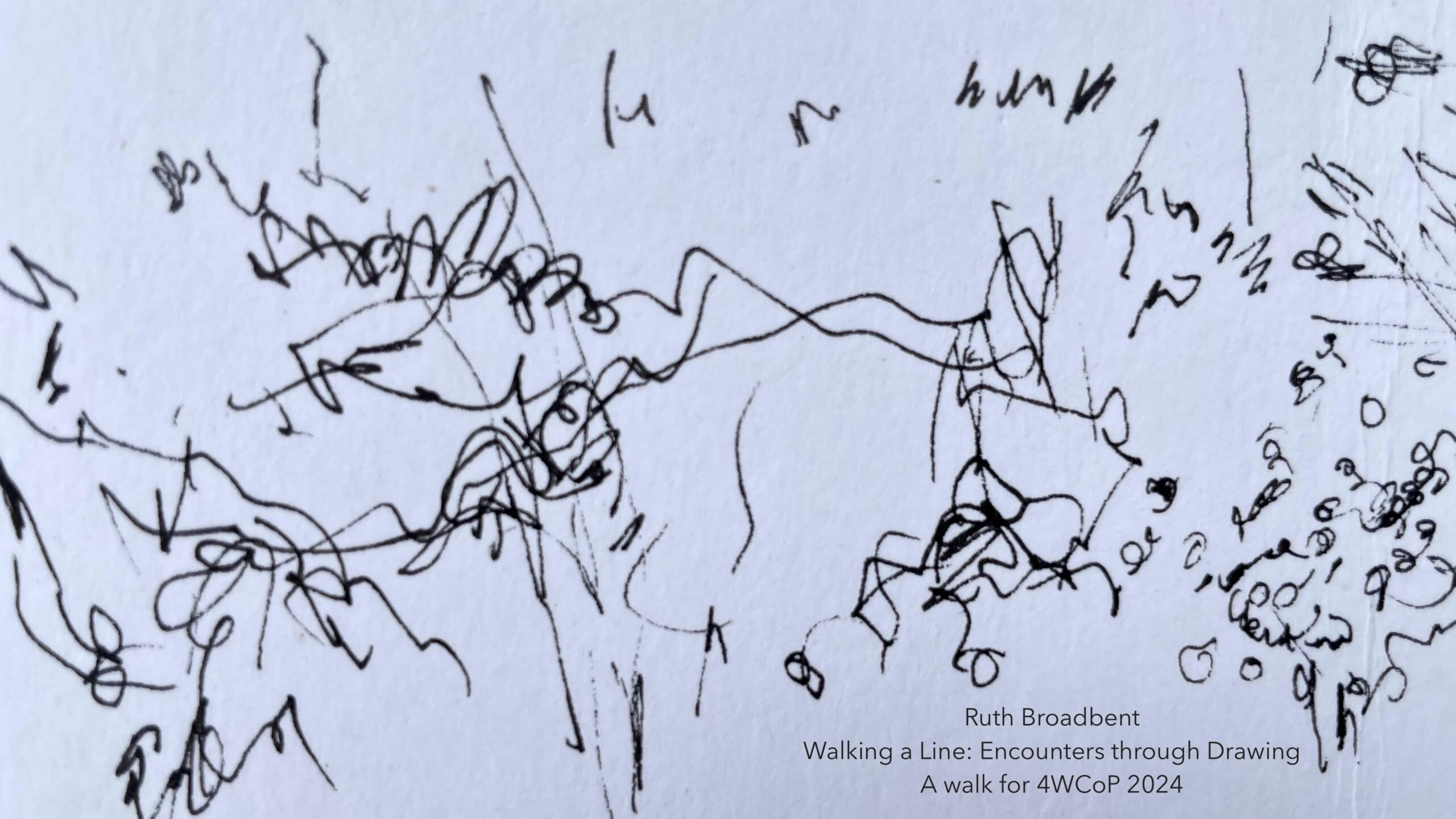
Walking a line between riverside and woodland, drawing whilst walking. Pen on paper tracks and traces sounds, movement and the rhythm of walking. Pausing to draw birdsong, the sounds of leaves and water, the movement of a branch, flight of a butterfly, attempting to geolocate its source on the page. In search of sensory responses and a visual mapping of Heritage and Hiraeth, I am taking into account layers of history and biodiversity whilst responding to unexpected and serendipitous encounters and whatever catches my eye: a visual response to what I see and hear whilst moving.
A drawing and video made by Ruth Broadbent for the Fourth World Congress of Psychogeography (4WCoP) ’Heritage and Hiraeth’ 2024.
Read more at https://www.ruthbroadbent.com/uncategorized/4wcop-2024/
Watch video at:
Credits
Ruth Broadbent

